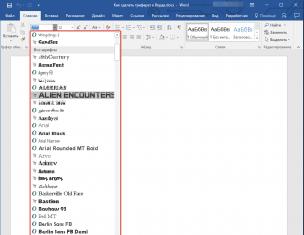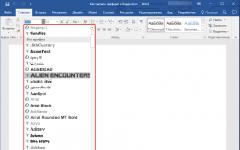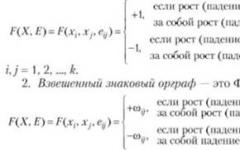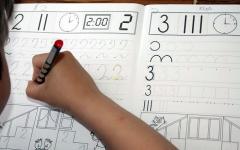Сборник упражнений для старшеклассников , студентов и всех тех, кому требуется поддерживать продвинутый уровень владения английским . Десять параграфов охватывают всю систему времен и неличностных форм английского глагола . Помимо упражнений на трансформацию и перевод, каждый параграфа включает речевые упражнения, позволяющие отработать изучаемый грамматический материал в условиях, максимально приближенных к реальному общению.
Год:
2017
Анастасия Затонская
Формат:
pdf
Учебник
Скачать
Размер:
10 Мб.
Сборник упражнений по грамматике английского языка. Продвинутый уровень
Сборник упражнений состоит из десяти параграфов и содержит обширный грамматический материал. Каждый параграф ориентирован на закрепление изучаемого грамматического явления, развивает умение выбирать правильные грамматические конструкции. И содержит упражнения на самостоятельную работу учащихся (трансформационные, упражнения на перевод и речевые упражнения).
Логика последовательности упражнений соответствует последовательности изучения грамматического материала. За трансформационными / подстановочными упражнениями следуют задания на перевод, после которых учащимся предлагается ряд упражнений на отработку грамматической конструкции в речевых / коммуникативных ситуациях.
Сборник упражнений для старшеклассников, студентов и кому требуется поддерживать продвинутый уровень владения английским
Упражнения в начале параграфа содержат сжато изложенное правило, помогающее учащимся эффективнее выполнять задание. В заданиях к речевым упражнениям включены уже не правила, а «элементы ситуаций», которые помогают учащимся определить, какое грамматическое явление следует использовать в данном случае.
Пример:
Ex. 1.
Complete the sentences. Do not forget about the difference in the Tenses: if you speak about something typical or regular, you should use the Present Simple Tense; if you speak about something untypical or going on at the moment of speech, you should the Present Progressive Tense.
1. He (to be) a very serious person, and he (to prefer) …. 2. What is wrong with Ann? She (to be) so passive today! – I (not to know) even how to explain it. Generally she (to be) very energetic and active. Probably …. 3. Kate is so industrious! Even now, when everybody (to enjoy) their holidays, she (to do) her home task. – It is quite possible that ….4. I need your help! You (to be) the most educated and broad-minded person among us. – Ok. What’s the problem? – My parents (to come) back from their vacation today and I (not to know) how to explain…. 5. I think you (to be) very careless. – What (to make) you think that? – Only a careless or stupid person (to leave) the house without an umbrella when it (to rain) cats and dogs like now. – (not to be) so tactless! I’m just in a hurry. I must ….6. How can you be so narrow-minded? He just (to use) you selfishly all the time, and you (to treat) him as the most respectable person in the world! – You (to be) jealous now! You just ….
Десять параграфов охватывают всю систему времен и неличностных форм английского глагола
Ex. 2
. Translate into English. The rule given in exercise 1 may help you.
1. Привет! Что ты здесь делаешь? – Я жду своего друга. К сожалению, он не слишком обязательный. – Ты часто его ждешь? – Да, довольно-таки. – Твоему терпению можно позавидовать. 2. Два человека едут в автобусе. Один спрашивает другого: «Вы идете сегодня на лекцию мистера Брауна? – Да, иду. – отвечает другой. – Лучше не ходите. Я слышал, что он очень ограниченный и скучный лектор. – Не могу. Я – Браун.» 3. «Ах, какой приятный человек! Он такой скромный, терпеливый, искренний! – Не будь такой наивной: он ведет себя так, только когда ему что-то нужно. На самом деле он эгоистичный, хвастливый и хитрый.» 4. «Что с тобой сегодня? Ты всегда такая спокойная, бесстрастная, рассудительная, уравновешенная, а сегодня тебя как подменили – эмоциональная, нетерпеливая! – Я просто хочу расслабиться для разнообразия. Неужели тебе не хочется чего-нибудь новенького?»
Система времен и неличностных форм английского глагола
Ex. 3 . Insert the verb in the proper form. Remember that you should use the Past Simple Tense, if you want to state the fact, which took place in the past, and the Past Progressive Tense, if you want to underline that the action was in progress when another event happened or if it was thought of as a continual process. Analyze use of the Present Continuous Tense.
1. Hello! Yesterday I (to meet) Kate! – Really? How she (to look) like? – Oh, she (to become) a real beauty. – But she probably (to remain) narrow-minded and uneducated as earlier. – You are being not very polite and kind today, you know. 2. Let’s invite Nick to the party. – Don’t even think of that. When I (to come) to his place last Sunday he (to do) his homework and (not to turn) his head to chatter with me. I hate such unemotional impassionate people who are constantly studying. 3. How (to be) your visit to the theatre with Ann yesterday? – Awful! When I (to come) at her place she still (to dye) her hair. Then she (to comb) her hair, (to polish) her nails, (to do) her make-up and even (to measure) her waist to improve her mood. And imagine – she (to grumble) that I (to be) too impatient!
Предлагаемое пособие рассчитано на широкий круг лиц, имеющих начальную языковую подготовку и продолжающих изучать английский язык с помощью преподавателя, либо самостоятельно. Основная цель пособия является развитие и закрепление навыков употребления грамматических конструкций, а также предупреждений возникновения типичных ошибок в устной и письменной речи .
Год: 2010
Издательство: Лексис
Формат: pdf
Скачать
Размер: 19,6
Mb
Сборник включает упражнения по основным разделам английского языка: артикль, существительное
Сборник включает упражнения по основным разделам английского языка : артикль, существительное, прилагательное, наречие, предлог, местоимение, числительное, глагол, согласование времен и косвенная речь , модальные глаголы и их эквиваленты, неличные формы глагола.
Сборник упражнений предназначен для тренировки и закрепления отдельных разделов грамматики английского языка . Упражнения даются по принципу возрастания трудности, что дает возможность подбирать их в соответствии с уровнем знаний учащихся. Может использоваться как для аудиторной, так и для самостоятельной работы . Для средних и высших учебных заведений , учащихся школ с углубленным изучением английского языка .
Прилагательное, наречие, предлог, местоимение, числительное, глагол
Translate paying attention to the articles.
Переведите, обращая внимание на артикли.
1. Я люблю ходить в Музей им. Пушкина.
2. Памятник Маяковскому находится на площади Маяковского.
3. Вы знакомы с Ивановыми?
4. Он путешествовал в Центральной Америке.
5. Южно-Африканская Республика находится в Южной Африке.
6. Тихий океан отделяет Азию от Америки.
7. Миссисипи - крупнейшая река США.
8. Воркута - город на севере Европейской части России.
9. Я никогда не был в Театре на Таганке.
10. Летом мы путешествовали по Волге.
11. Мы остановились в гостинице «Россия».
12. Дисентис - небольшой город в Швейцарских Альпах.
13. Лето в Крыму жаркое.
14. Красная площадь - исторический центр Москвы.
15. Рейн начинается в Альпах.
16. Мы заблудились, потому что повернули не в ту сторону.
17. Театр им. Станиславского находится на Тверской улице.
Согласование времен и косвенная речь, модальные глаголы и их эквиваленты, неличные формы глагола
Paraphrase the following using the verb in the brackets and an Infinitive construction.
Перефразируйте, используя инфинитивную конструкцию после глагола в скобках.
1. This part of land was under the sea (to believe).
2. Our ways never crossed (to happen).
3. His flat was a one-room affair (to turn out).
4. My fears were groundless (to prove).
5. Hardly anybody noticed his departure (to appear).
6. The truth will come out (to be sure).
7. The answer will not please him (to be likely).
8. The man’s mind was working with extraordinary freedom (to seem).
9. The events would be much commented on in the press (to be certain).
10. He is the best candidate for the post (to consider).
« АНГЛИЙСКИЙ ЯЗЫК »
Сборник упражнений
1 семестр
для студентов отделения ПССЗ
Разработал: С.Д. Иванова
ТЕМА 1. СОПРЯЖЕНИЕ ГЛАГОЛА “to be”.
Упражнение 1.
“to be”.
1. We are glad that we are in London.
2. It’s a pity that your friend is ill.
3. Comrade Popov is quite free now because he is on leave.
4. We a busy today because we are at work.
5. My brother is very glad that he is at sea.
6. The mate and the sailors are in the port how because their ship is there.
7. If is a pity that your friend is not free today.
8. The hall is light because the windows are large.
9. The ship of my sister’s husband is far from here. She is in fur North now.
10. I am very glad that I am not on duty on Sunday.
Упражнение 2.
Вставьтеam, is, are.
1. I ... not a teacher, I ... a cadet.
2. “... you a pilot?” “No, I ... not”.
3. “... he a captain?” “Yes, he ...”.
4. The pilot and the captain ... not on deck.
5. “Where ... you?” “We ... in the hall”.
6. Comrade Smirnova ... not in this room. She ... in that room.
7. “... that table black?” “Yes, it ...”.
8. “... the windows small?” “No, they ... not”.
9. “Who ... in the engine-room?” “The engineer ...”.
10. “... your comrades cadets”. “Yes, they ...”.
Упражнение 3.
Поставьте вопросы к предложениям
1. It is a class-room.
2. It is an English book.
3. My brother is a student.
4. His name is comrade Petrov.
5. The ship is in the port.
6. The pencils are red.
7. My sister is 15 years old.
8. His notebook is on the table.
9. They are Russian officers.
10. Those sailors are on deck.
11. Our cabins are large.
Упражнение 4.
Переведите следующие предложения на английский язык, обращая внимание на употребление глагола “to be” в The Present Indefinite Tense.
1. Это судно малое, а то судно большое.
2. Эти матросы в каюте, а те матросы на палубе.
3. Мы находимся на уроке английского языка.
4. Преподаватель у доски.
5. Её портфель на столе.
6. Курсанты за партами.
7. Кто вы? Я моряк.
8. Чьё судно находится в доке? Судно этих моряков находится в доке.
9. Как вас зовут? Меня зовут Николай.
10. Откуда вы? Я с Севера.
11. Где капитан? Он на мостике.
12. Вы радист? Нет, я механик.
13. Почему два курсанта отсутствуют? Они на вахте.
14. Почему вы часто опаздываете? Мои часы неисправны
ТЕМА 2.
ОБОРОТ there is / there are
Упражнение 5.
Переведите следующие предложения на русский язык, обращая внимание на конструкции
“there is/are”.
1. The note-books are on the table. There are note-books on the table.
2. The instruments are in the laboratory. There are rather many different instruments there.
3. There are not many pilot-books on this shelf.
4. - Are the students in the hall? - Yes, there are some.
5. - Are there any models of machines in the teacher’s room? - No, there are no models of machines there.
6. There are no navigational instruments in that hall.
Упражнение 6.
Поставьте следующие предложения
А) в вопросительную форму
1. There is a bookshelf in that room.
2. There are some note-books in the bag.
3. There is a Marine School near the port.
4. There are some models of engines in that laboratory.
5. There are very many cadets in the hall now.
Б)
в
отрицательную
форму
1. There is an English book on the shelf.
2. There are some engineers in this laboratory now.
3. There is a model of a ship on that table.
4. There French ships in the port today.
5. There are many sailors on deck now.
Упражнение 7.
Переведите следующие предложения, обращая внимание на употребление оборота
“there is/are”.
Mrs Smith’s living-room is large. There is a television in the room. The television is near the window. There are some magazines on the television. There is table in the room. There are some the newspapers on the table. There are some armchairs in the room. The armchairs are near the table. There are a radio in the room. The radio is near the door. There are some books on the radio. There are some pictures in the room.
The pictures are on the wall.
Упражнение 8.
Переведите и ответьте на следующие вопросы.
1. Mrs. Smith’s living-room is large, isn’t it?
2. Is there a TV set in the room?
3. Where is it?
4. What’s there on the television?
5. There is a table in the room, isn’t there?
6. Are there newspapers or magazines on the table?
7. There are some armchairs in the room aren’t there?
8. Where are the armchairs?
9. Is there a radio in the room?
10. Is it near the door or near the window?
11. What is there on the radio?
12. Are there any pictures in the room?
13. Where are they?
Упражнение 9.
Переведите следующие предложения на русский язык, обращая внимание на конструкцию
there is/are
и глагол
to have
.
1. How many cinemas are there in your town? – There are some, two or three, I think.
2. Have you got any chalk? – Yes, I’ve got a little. Take some in the box.
3. There is too much furniture in their sitting room (or they have got too much furniture in their sitting room).
4. Please, give me something to read.
5. There is nothing (isn’t anything) in the vase.
6. How many sisters has he? He has no (not any) sisters. He has two brothers.
7. There is nobody in the flat.
8. There is something on the table.
9. Is there anybody in the office?
10. How much money have you got?
11. There are a lot of children in the park.
12. There is no (isn’t any) butter in the fridyl.
13. I haven’t got many relatives (I have few relatives).
14. Have you got many (a lot of) books? – No, very few.
15. There are some (a few) parks in our city.
16. There are no (aren’t any) chairs in the sitting-room.
17. Somebody is standing at the windows.
18. There is nothing in the bag.
19. I have no (haven’t any) time to go there.
20. I have very little paper. I’m going to buy some.
21. There are a lot of women at this factory, but very few men.
22. He hasn’t got many friends.
23. There isn’t much tea in the teapot.
24. We haven’t got much work today.
25. You haven’t got many mistakes in your dictation (or there aren’t many mistakes in your dictation).
26. Are there many roses in your garden? (or ----- you got many roses in your garden).
27. There are some (a few) news papers on the table.
28. I have a little time I’m going to the cinema.
ТЕМА 3.
ИМЯ СУЩЕСТВИТЕЛЬНОЕ
Множественное число имен существительных.
Упражнение 10.
Поставьте следующие существительные во множественном числе.
A table, a plate, a fox, a room, a lady, a knife, a chair, a Negro, a match, a house, a family, a country, a lion, a play, a a watch, a mouse, a dress, a sheep, a child, a life, a tomato.
Упражнение 11.
Поставьтеследующиесловосочетаниявомножественномчисле:
This ship, this mate, that sailor, this picture, this foot, that mountain, this seaman, that German, this pilot-book, that knife, this instrument.
Упражнение 12.
Поставьте следующие предложения во множественное число.
1. This man is an engineer.
2. That woman is my sister.
3. This child is his son.
4. My pen is in my pocket.
5. This shoe is too large for my foot.
6. My tooth is white.
7. Put the knife on the table.
8. This story is very interesting.
9. Is this sailor an Englishman or a German? – He is a Frenchman.
10. That ship is a Russian one.
11. Where is the coin? It is in the box.
12. What colour is the box? – It is green.
13. What is it made of? – It is made of wood.
14. What is that man? He is a pilot.
15. Where is she from?
She is from Murmansk.
ТЕМА 4.
НЕОПРЕДЕЛЕННЫЙ И ОПРЕДЕЛЕННЫЙ АРТИКЛИ
Упражнение 13.
Вставьте артикли a , an , the где они необходимы :
1. Last week I met my … friend. He was with ... young girl. ... girl was a student of our ... Academy.
2. This is ... pencil, ... pencil is red.
3. She is ... teacher. She is our ... teacher of English.
4. It is ... lake. ... lake is deep. It"s one of ... deepest lakes in ... world.
5. There are ... many flowers in your garden. ... flowers are beautiful.
6. Did you write ... plan? Give me your ... plan, please.
7. ... Black Sea is in ... South of Russia.
8. This is ..„Nick. He works as ... engineer. He is ... good engineer.
9. There are ... some schools in our street..... schools are new.
10. Yury Gagarin was ... first cosmonaut of the world.
11. In summer ... sky is blue and ... sun shines brightly.
12. ... Petrovs are very friendly.
13 . This is -... Ann"s book.
14. ... winter begins in December.
15. What .. fine day it is today!
16. ... History and ... Computer Science were ... my favourite subjects at ... school.
17. I don"t know ... way to ... station.
18. He is ... engineer by ... profession.
19. Usually I get up at ... 7 o"clock in ... morning.
20. Will you have ... cup of ... tea?
21. ... Warsaw is ... capital of Poland.
22. This is ... book, ... book is very interesting.
23. Do you see ... sun in ... sky today?
24. He is ... engineer by ... profession.
25. I went to ... Smirnovs, but they were not at ... home.
ТЕМА 5.
ПРИЛАГАТЕЛЬНОЕ
Сравнительная степень прилагательных.
Упражнение 14.
Раскройте скобки, употребляя требующуюся форму прилагательного.
1. This man is (tall) than that one.
2. Asia is (large) than Australia.
3. The Volga is (short) than the Mississippi.
4. Which building is the (high) in Moscow?
5. Marry is a (good) student than Lucy.
6. The Alps are (high) than the Urals.
7. This garden is the (beautiful) in our town.
8. She speaks Italian (good) than English.
9. Is the word newspaper (long) than the world “book”?
10. The Thames is (short) than the Volga.
11. The Arctic Ocean is (cold) than the Indian ocean.
12. Chines is (difficult) than English.
13. Spanish is (easy) than German.
14. She is not so (busy) as I am.
15. It is (cold) today as it was yesterday.
16. She is not so (fond) of sports as my brother is.
17. Today the weather is (cold) than it was yesterday.
18. This book is (interesting) of all I have read this year.
19. January is the (cold) month of the year.
20. My sister speaks English (bad) than I do.
21. Which is the (hot) month of the year?
22. Which is the (beautiful) place in this part of the country?
23. This nice-looking girl is the (good) student in our group.
Упражнение 15.
Раскройте скобки, употребляя сравнительную или превосходную форму прилагательного.
1. Oil is (light) than water.
2. We shall wait for a (dry) day to go on the excursion.
3. A bus (fast) than a tram.
4. Take some of these sweets: they are very (nice) they are (nice) than the sweets in that box.
5. He clearly didn’t like the explanation and as he listened to it, he became (angry) and (angry).
6. He worked (hard) and (hard) as the end of the term came nearer.
7. The (tall) trees in the world grow in California.
8. Please be (careful) next time and don’t spill the milk again.
9. Bobby was a (quiet) child. He was (quiet) than his sister.
10. Her eyes are (gray) than mine.
11. He was the (fat) man in the village.
12. As he went on, the box became (heavy) and (heavy).
13. My sister is the (tall) girl in her class.
14. Who is the (attentive) student in your group?
15. If is autumn. Every day the air becomes (cold), the leaves (yellow).
16. This is the (beautiful) view I have ever seen in my life.
17. Your hand writing is now (good) than it was last year, but still it is not so (good) as Nick’s hand writing. Nick has a (good) handwriting than you. And of course Nellie has the (good) handwriting of all.
Упражнение 16.
Переведите следующие предложения на русский язык, обращая внимание на степени сравнения имен прилагательных и сравнительных конструкций.
1.This ship is not so large as that ship. That ship is the largest ship in the Black sea.
2. - I s the Neva as large as the Don? – No, the Don is longer than the Neva.
3. This book is not so thick as that book. That book is thicker.
4. Are the docks of Riga as big as the docks of Leningrad? No, the docks of Leningrad are bigger than the docks of Riga.
5. Is the speciality of a pilot as interesting as the speciality of a radio-operator?
6. Which is the warmest month in your town? July is the warm month in my town.
Упражнение 17.
Переведите следующие предложения на английский язык, употребляя соответствующую степень сравнения.
1. Нефть легче воды.
2. Автобус быстрее, чем трамвай.
3. Самые высокие деревья в мире растут в Калифорнии.
4. Ваш почерк лучше, чем мой.
5. Ноябрь не такой холодный месяц, как январь.
6. Погода сегодня хуже, чем вчера.
7. Какая из этих книг самая интересная.
8. Осенью дни становятся холоднее, листья желтее.
9. Её чемодан тяжелее моего.
10. Он самый старший в группе.
11. Он также устал, как и вы.
12. Лучше поздно, чем никогда.
13. Она не такая красивая, как её мать.
14. Темза такая же красивая, как Нева.
15. Он такой же умный, как его брат.
16. Больше всего я люблю навигацию.
17. Его каюта больше моей.
ТЕМА 6.
МЕСТОИМЕНИЕ
Притяжательный падеж личных местоимений и существительных.
Упражнение 18.
Переведите следующие предложения на русский язык, обращая внимание на форму притяжательных местоимений и форму притяжательного падежа существительных.
1. Is this your newspaper? No, it’s Nina’s.
2. What is your new flat like? It is large and light.
3. Whose car is that your father’s or yours? – My father’s.
4. Where are our tickets? – They are in my bag.
5. What colour is your new coat? – Blue.
6. Nick is in Moscow now, isn’t he? – Yes, he is.
7. Is this your pen? No, mine is red. I think it’s Victor’s.
8. Where is my umbrella? – Look on the desk.
9. My suitcase, please. – What colour is it? – Brown. – here it is.
10. What’s this? – It’s a very interesting book.
11. Is this your umbrella? No. - Are–you sure? Yes, I am. My umbrella is blue.
12. Whose notebooks are these? Are they yours, Ann? – No, mine are in my bag.
Ask Helen, perhaps, they are hers.
Упражнение 19.
Переведите следующие предложения, обращая внимание на возвратные местоимения.
1. He shaves him self every other day.
2. Go and wash yourself.
3. She thinks too much of herself.
4. Sit down and made yourself at home.
5. Don’t worry about us. We can look after ourselves.
6. He prides himself on his English.
7. She makes cakes herself.
8. I like living by myself.
9. Behave yourself.
Упражнение 20.
Переведите следующие предложения на английский язык, обращая внимание на употребление возвратных местоимений.
1. Они в своей комнате.
2. Она порезалась.
3. Я делаю это сам.
4. Вы сами говорите это.
5. Посмотрите на себя.
6. Я не доволен собой.
7.
Онготовитобедсам.
Упражнение 21.
Вставьте
a lot of, many, much, few, a few, little
.
1. - Hurry up! - We have very ... time.
2. Don’t make so .. noise.
3. There are ... tape-recorders in this laboratory but very ... TV sets.
4. - Is there ... or ... snow in England in winter?
5. - Are there ... mistakes in my test? - No, your test is very good.
6. - Are there ... or... pictures in this book? - Only ... .
7. - There is still ... sugar in my tea. - May I ask you for some more sugar?
8. - Can you describe the situation in ... words?
9. - How ... water is there in the tea-pot? - Very ... .
10. We haven’t got ... work today.
11. How ... students are there in your group.
Much, many, a (little), a (few).
Упражнение 22.
Вставьте
much
или
many.
1. Please don’t put ... pepper on the meat.
2. There were ... plates on the table.
3. I never eat ... bread with soup.
4. Why did you eat so ... ice-cream?
5. She wrote us ... letters from the country.
6. ... of these students don’t like to look words in the dictionary.
7. ... in this work was too difficult for me.
8. ... of their answers were excellent.
9. ... of their conversation was about the institute.
10. There are ... new pictures in this room.
11. There are ... teachers at our school, and ... of them are women.
12. ... of these plays are quite new.
13. Thanks awfully for the books you sent me yesterday . – Don’t mention it, it wasn’t ... bother.
14. ... of her advice was useful.
15. He had ... pairs of socks.
Упражнение 23.
Вставьте
little
или
few
.
1. I have ... time, so I can’t go with you.
2. He has ... English books.
3. There is ... ink in my pen. Have you got any ink?
4. There are ... bears in the zoo.
5. Tom Canty was the son of poor parents and had very ... clothes.
6. There is too ... soup in my plate. Give me some more, please.
7. The children returned from the wood very sad because they had found very ... mushrooms.
8. There was too ... light in the room, and I could not read.
9. There a very ... people who don’t know that the earth is round.
Упражнение 24.
Вставьтеmuch, many, little, few
.
1. My brother is a young teacher. Every day he spends ... time preparing for his lessons.
2. I know very ... about this writer. It is the first book, I am reading.
3. The pupils of our class ask ... questions at the lesson. They want to know everything.
4. You do not make ... mistakes in your spelling. Do you work hard at it? Oh, yes, I do. I work very ... .
5. Does your sister read .? - Yes, she does and your brother? – Oh, he doesn’t. He has so ... books, but he reads very ... .
6. Have you ... work to do today? – Not very ... .
7. Walk quicker, please . We have very ... time .
8. I am sorry to say, I have very ... books by Walter Scott.
Упражнение 25.
Вставьте
little, few
или
a little, a few
.
1. I have ... money, so we can go to the cinema.
2. I have ... money, so we cannot go to the cinema.
3. This girls works very ..., that’s why she knows nothing.
4. Mother gave us ... apples, and we were glad.
5. He didn’t like it at the camp he had very ... friends there.
6. This lemon drink is sour, if you put ... sugar in it , it will be sweeter.
7. This hall was almost empty there were ... people in it.
8. I can’t buy this expensive hat today. I have too ... money.
9. She left and returned in ... few minutes.
10. I think you can spare me ... time now.
Производные от some, any, no, every.
Упражнение 26.
Переведите следующие предложения, обращая внимание на производные от неопределенных местоимений
some, any, no, every
.
1. Have you any books about Russian seaman. Yes, I have some.
2. There is somebody in the ___.
3. - Does comrade Popov work anywhere? – Yes, he works somewhere.
4. Everybody wants to attend the lecture of Professor Petrov.
5. He must write something about his voyage on the “Gruzia”.
6. Nobody can speak French here.
7. Repeat everything before the lesson.
8. Don’t ask me anything now. I am very busy.
9. - Can anyone translate this sentence?
10. Have you anything important to tell me? - No, I have nothing important to tell you.
Упражнение 27.
Заполнитепропускипроизводнымиотнеопределенныхместоимений
some, any, no, every – something, somebody, anything, anybody, nothing, nobody, everything, everybody
.
1. Go to the captain and tell him ... .
2. Is there ... in the cabin. No there is ... there, but there is ... on deck.
3. I do not see the chart ... .
4. ... may study in our country.
5. Have you ... interesting to read? No, I have ... .
6. On the first of may there are many people ... .
7. Has ... in this group got a dictionary?
8. ... knows that water is necessary for life.
9. Is there ... here who knows French?
10. You must find ... who can help you.
11. The question is so difficult that ... can answer it.
Упражнение 28.
Вставьте
somebody, anybody, nobody
или
everybody
.
1. Has ... in this group got a dictionary?
2. ... left a magazine in our classroom yesterday?
3. The question ... so difficult that ... could answer it.
4. I am afraid I shan’t be able to find ... in the office now: it is too late.
5. ... knows that water is necessary for life.
6. Is there ... here who knows French?
7. You must find ... who can help you.
8. ... knew anything about America before Columbus discovered it.
9. I saw ... in the train yesterday who looked like you.
ТЕМА 7.
ИМЯ ЧИСЛИТЕЛЬНОЕ
Время, даты.
Упражнение 29.
Переведитеследующиепредложениянарусскийязык,
обращаявниманиенаобозначениевремени,
дат.
1. – What time is it? - It’s a quarter to eleven (half past eleven; a quarter past twelve; twenty minutes past 8; twenty minutes to six; half past twelve; ten minutes past four; five minutes to nine; five minutes past nine; a quarter to eight)
2. – What time is it by watch? – It’s ten minutes to eleven. My watch is ten minutes slow. – And my watch is five minutes fast.
3. What date is it today? – Today is Tuesday the twenty-fifth of January. (Today is Friday, the ninth of June. Today is Wednesday, the twelfth of July. Today is Saturday, the twenty third of May)
ТЕМА 9.
ВОПРОСИТЕЛЬНЫЕ ПРЕДЛОЖЕНИЯ
Упражнение 30.
Прочитайте и переведите текст. Составьте вопросы разных типов.
A Surprise Birthday .
A dear old lady often comes into our shop for her newspaper. A week ago she said excitedly, “It’s my eightieth birthday today.”
I asked what she was doing to celebrate the event and she said, “Nothing”. Her son wasn’t visiting and she would be on her own.
There were several customers waiting to be served and I told them it was this lady’s birthday. We all started to sing Happy Birthday and then filled a bag with Crème Eggs and gave it to here. Her eyes were full of tears as she said, “I’m having a great day!”
After she’d left, everyone paid their share towards her gift – and then we all reached for our handkerchiefs.
ТЕМА 10.
ГЛАГОЛ to have (got).
Упражнение 31.
Переведите предложения на русский язык, обращая внимание на глагол
“to have”
и
“to have got”.
1. He has (got) very interesting books.
2. My friend has no dog (hasn’t got a dog).
3. His parents have (got) a big house.
4. Have you got a white dress? – Yes, I have.
5. Ann has no French books at home.
6. They have a good and light flat.
7. Has your friend got a family? – No, he hasn’t.
8. Tom has (got) many new friends.
9. I haven’t got a good map.
10. Have they got a car? – Yes, they have.
11. Which of you has got a sister? Nick has.
12. Kate always has a lot of work to do.
13. Have you got any time to write a letter?
14. My son has no skis.
15. I have no questions (to ask).
16. Which book by Leo Tolstoy have you got?
Упражнение 32
Переведите следующие предложения на русский язык, обращая внимание на глагол
“to have”.
My name’s Gloria Gasto. I’m an actress. I’m from London. I’ve got a flat in London and a house in Hollywood with a swimming pool. I’ve got a new Rolls-Royce and a lot of money in the bank. I’ve got a husband and three wonderful children. Life’s great! I’ve got everything.
My name’s Tom Atkins. I’m from London too. I’m broke. I haven’t got any money. I haven’t got a job, or a house or a car. I haven’t got a wife, and I haven’t got any children. Life’s terrible. I haven’t got anything.
His name’s Terry Archer. He isn’t from London. He’s from Oxford. He’s factory worker. He’s got a good job. He’s got a car. He hasn’t got a big house, he’s got a flat. He’s got a wife, but he hasn’t got any children. Life’s all right.
Упражнение 33.
Поставьтевопросыквыделеннымсловам.
1. His
sister
has some English magazines.
2. They have little
free time
.
3.Our college has a
good
library.
4.
We
have a lecture on seamanship today.
5. I have a good time on
Sunday
.
6. They have some books on
navigation
.
7.
This group
has a meeting today.
8. That ship has a small
crew
.
9. He has
many
mistakes in his dictation.
Книга содержит краткое описание основных грамматических правил английского языка и 750 разнообразных лексико-грамматических упражнений для формирования и закрепления навыков употребления лексики и грамматики в устной и письменной речи. Упражнения организованы в разделы по частям речи: существительное, артикль, предлог, местоимение, прилагательное, глагол. Имеется также раздел с упражнениями по синтаксису. Все подстановочные упражнения снабжены ответами, позволяющими проверить правильность их выполнения при самостоятельной работе.
Сборник упражнений предназначен для учащихся старших классов и студентов, может быть использован при подготовке к экзаменам, в том числе к ЕГЭ.
Примеры.
Переведите предложения, используя существительные абстрактные и вещественные:
1. Если нет доверия, нет уважения и любви. 2. Опыт дает новые знания. 3. Неудачный случай (опыт) - это не трагедия. 4. Иногда время важнее денег. 5. Ты действительно прочитал эти документы два раза? 6. Я не понимаю, где деньги. Я положил их в карман. 7. Давать советы легко, труднее им следовать. 8. Некоторые пьют кофе с молоком и сахаром, другие пьют крепкий кофе без сахара. 9. Масло не может испортить блюдо. 10. Некоторые сорта мяса нужно варить не менее трех часов. 11. Соль убивает микробы и бактерии. 12. Терпение помогает преодолевать трудности. 13. Профессиональные знания хорошего специалиста дают результат в практическом применении. 14. Некоторые считают, что успехи в карьере дают ощущение счастья.
Выберите из данных существительных собирательных употребляемые только в единственном или только во множественном числе:
people, society, audience, company, staff, council, jury, army, police, group, troop, troupe, traffic, public, family, team, crowd, rabble, mob, herd, poultry, flock, cattle, foliage, hair, furniture, machinery, majority, minority, business, band.
Бесплатно скачать электронную книгу в удобном формате, смотреть и читать:
Скачать книгу Сборник упражнений к основным правилам английской грамматики для школьников, Камянова Т.Г., 2016 - fileskachat.com, быстрое и бесплатное скачивание.
- 2000 тестовых заданий по английскому языку, Камянова Т.Г., 2016
Следующие учебники и книги:
- ОГЭ, Английский язык, Комплекс материалов для подготовки учащихся, Веселова Ю.С., 2017
- Английский язык, Письмо, Говорение, Экспресс-репетитор для подготовки к ГИА, 9 класс, Терентьева О.В., Гудкова Л.М., 2013
Раскройте скобки, употребляя нужные временные и залоговые формы глаголов.
As soon as I (notice) that Maria (can) not pronounce her "s"s" I (make) an appointment and (see) a doctor. He (tell) me that she (grow) out of it naturally. I (not believe) that and, consequently, I (get) in touch with my old school friend who (live) near us. She still (work) as a speech therapist in a local hospital and she (take) the matter seriously and (send) me back to my doctor. Although a month or so (elapse), Maria"s lisp (grow) appreciably worse and that (help) to convince the doctor. Maria (see) by the consultant two months ago and (have) treatment for three weeks already. In my opinion she (make) progress and I (be) confident that in a month or so she (cure).
Примеры.
Translate paying attention to the articles.
Переведите, обращая внимание на артикли.
1. Я люблю ходить в Музей им. Пушкина.
2. Памятник Маяковскому находится на площади Маяковского.
3. Вы знакомы с Ивановыми?
4. Он путешествовал в Центральной Америке.
5. Южно-Африканская Республика находится в Южной Африке.
6. Тихий океан отделяет Азию от Америки.
7. Миссисипи - крупнейшая река США.
8. Воркута - город на севере Европейской части России.
9. Я никогда не был в Театре на Таганке.
10. Летом мы путешествовали по Волге.
11. Мы остановились в гостинице «Россия».
12. Дисентис - небольшой город в Швейцарских Альпах.
13. Лето в Крыму жаркое.
14. Красная площадь - исторический центр Москвы.
15. Рейн начинается в Альпах.
16. Мы заблудились, потому что повернули не в ту сторону.
17. Театр им. Станиславского находится на Тверской улице.
Paraphrase the following using the verb in the brackets and an Infinitive construction.
Перефразируйте, используя инфинитивную конструкцию после глагола в скобках.
1. This part of land was under the sea (to believe).
2. Our ways never crossed (to happen).
3. His flat was a one-room affair (to turn out).
4. My fears were groundless (to prove).
5. Hardly anybody noticed his departure (to appear).
6. The truth will come out (to be sure).
7. The answer will not please him (to be likely).
8. The man’s mind was working with extraordinary freedom (to seem).
9. The events would be much commented on in the press (to be certain).
10. He is the best candidate for the post (to consider).
Бесплатно скачать электронную книгу в удобном формате, смотреть и читать:
Скачать книгу Сборник упражнений по грамматике современного английского языка, Цветкова Т.К., 2012 - fileskachat.com, быстрое и бесплатное скачивание.
- Английская грамматика, Ключ к пониманию, Цветкова Т.К., 2012 - Данная книга включает курс грамматики современного английского языка и пособие для преподавателя Как преподавать английский язык, содержащее рекомендации относительно … Книги по английскому языку
- Путеводитель по грамматике английского языка, Цветкова Т.К., 2009 - Предлагаемое учебное пособие охватывает все основные темы английской грамматики. Пособие рассчитано на широкий круг лиц, желающих овладеть английским языком как … Книги по английскому языку
- Английский язык, Самоучитель для тех, кто хочет наконец его выучить, Цветкова Т.К., 2016 Книги по английскому языку
- Английский язык, самоучитель, Цветкова Т.К., 2016 - Это инновационное учебное пособие предназначено для самостоятельных занятий английским языком. Оно подойдет как начинающим изучать английский язык, так и тем. … Книги по английскому языку
Следующие учебники и книги:
- Англійська мова, Розмовнi теми, Частина 1, Гужва Т.М., 2003 - Предлагаемая вниманию читателей книга представляет собой пособие по совершенствованию навыков устной речи для лиц, уже имеющих необходимую языковую подготовку. Пособие … Книги по английскому языку
- Говорите по-английски, Диксон Р.Р., 1961 - Цель настоящего пособия - сделать английскую разговорную речь доступной изучающим английский язык. Материал пособия составлен таким образом, чтобы постепенно расширять … Книги по английскому языку
- Английский в кармане, Самые ходовые слова и выражения, Тивилёва Е., 2015 - Сложно запоминать слова? Хочется выучить несколько значений одного слова? Важно использовать синонимы? Этот карманный справочник создан специально для вас. Вы … Книги по английскому языку
- Да здравствует английская грамматика, Уровень Beginners, Пособие для младших школьников, Фурсенко С.В., 2011 - Светлана Васильевна Фурсенко предлагает младшим школьникам свой путь освоения английской грамматики. На этом пути верными союзниками учеников станут стихотворения, шутки, … Книги по английскому языку
Предыдущие статьи:
- Английские социальные диалекты, Маковский М.М., 1982 - В пособии рассматриваются фонетические, грамматические и словообразовательные особенности английских социальных диалектов, в частности сленга. Впервые сделана попытка подойти к решению … Книги по английскому языку
- English in the Light of Proverbs and Quotations, Ененкова Л.Н., Ененкова О.Н., 2001 - Настоящее пособие охватывает широкий диапазон английских пословиц, поговорок, а также идиоматических выражений и содержит большой набор упражнений различных типов на … Книги по английскому языку
- Английский язык для детей, Державина В.А., 2015 - Предлагаемая книга представляет собой полный справочник по английскому языку, в первую очередь предназначенный для школьников младших классов. Пособие содержит самую … Книги по английскому языку
- Английский разговорный шутя, 100 анекдотов на все случаи жизни, Миловидов В.А. - Учебное пособие, ориентированное на совершенствующихся в изучении английского языка, основано на современных англоязычных анекдотах и смешных историях. Занимаясь с пособием, … Книги по английскому языку








